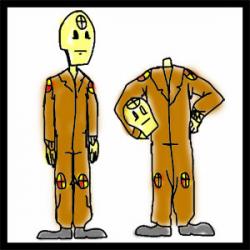Choices and Consequences

In life we make choices then seem to have a hard time living with the consequences. We see examples in every day life.
- Officer, please don’t give me a ticket.
- I think I should get a better grade on my paper.
- Can you please make an exception?
- I want two years of unemployment.
- You need to pay your fair share.
- I’m going to sell short my home because I really can’t afford the mortgage.
Too often, I believe, we forget that our choices have consequences.
Recently, I saw a statement:
What sort of person thinks there’s nothing wrong asking the folks tasked with teaching our children a 20% cut on a $50,000 salary but thinks it’s a terrible idea asking a millionaire to pay 3% more in taxes?
I think the type of person they are wondering about is the person that understands the concept of choice and consequence.
The problem with this argument is it assumes what is fair. It assumes that because one has, he should give it up for another.
How is that fair?
When the teacher chose to work in the public sector, that came with some assumed consequences… lower pay, less support and being paid based on budgets out of your control are only three examples.
When a business executive chose to start a business or take large risks, that came with consequences, too… no guarantee on the low end for avoidance of failure, larger possibility of reward and being in greater control of income are only three examples.
I am sure that many will think this is a callous approach. I am sure that there will be some that will say that I must not care about the education of my children.
That is not anywhere near accurate.
I think the best lesson we can teach our children is that life is like physics. Every action has an equal and opposite reaction. When we live beyond our means in managing our finances, at some point, we have to pay more in interest. That means that we have to make cuts in our standard of living. That may mean certain benefits we’ve enjoyed go away.
The reality is that a 3% raise in taxes on the rich will not even come close to adding up to a 20% reduction in teachers’ salaries. In fact, I think it’s a bit of hyperbole to even make that argument. Especially when you consider that a 20% pay cut would be nearly impossible to pass into law.
The validity of what will or could happen is not the point here.
The point is that people have choices and must live with the consequences of those choices.
We have made the choice for a long time of living beyond our means by pretending that we’ll be fat and rich forever. The wealthy have made better choices by preparing for the down times. Why should they be responsible to pay for the poor decisions of others?
If we need to cut teachers’ salaries, as a part of measures to make our system whole again, the teachers have a choice. They can either accept the reduction or find other employment. This is no different than anyone else in any other position.
- If you play with fire, you get burned.
- If you run up a credit card, you pay interest.
- If you are a jerk, people hate you.
- If you work hard, you’ll be rewarded.
- If you make a choice, you live with the consequence.
A choice always precedes a consequence.

Corey Smith and his wife are the proud parents of five wonderful children and live in Meridian, Idaho. He is the president of Tribute Media, a Meridian based Web Consulting firm.
He is the author of two books, "Do It Right: A CEO's Guide to Web Strategy" and "Tweet It Right: A CEO's Guide to Twitter." You can learn more about his books here.
Interested in having Corey speak for your organization? Need help building or marketing your organization? Want to tell Corey how cool you think he is?
